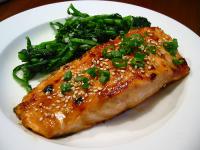
Abdominal pain, bloating, gas, cramping, diarrhea and constipation are a fact of life for the millions of Americans who suffer from irritable bowel syndrome (IBS). Also known as spastic colon and nervous indigestion, IBS is usually diagnosed only after a doctor has ruled out more serious conditions, such as ulcerative colitis or colon cancer.
For many people, IBS symptoms are so severe that they have to plan their outings and day-to-day activities around trips to the bathroom.
What Causes IBS?
Despite its prevalence, no one is certain what causes IBS. Emotional distress was once thought to be the culprit-patients were often told it was "all in their heads." While it's true that stress and anxiety worsen the condition, physicians now know the problem is in the gut, not the head.
Some research suggests that the muscles and nerves in the colons of IBS sufferers may be hypersensitive, and as a result, they respond strongly to stimuli that would not bother most people.
Conventional IBS Treatments
Not surprisingly, conventional IBS treatments consist primarily of prescription drugs. These include tranquilizers and antidepressants, which can improve IBS symptoms but have a host of other complications including addiction, anxiety, nausea and even violent behavior.
One IBS drug, Lotronex, was pulled from the market only months after it was approved by the FDA because it caused several deaths and numerous serious side effects requiring surgery or hospitalization.
Diet Makes All the Difference
Fortunately, there are natural IBS treatments. Most digestive difficulties can be managed with dietary modifications.
Eat more fiber from vegetables, beans, peas and fruits. Fiber is important not only for stool formation, but also for the overall health of your gastrointestinal (GI) tract. Aim for at least 30 grams daily.
Limit your intake of caffeine. Caffeine is a powerful GI tract irritant that can be especially problematic for IBS sufferers.
Cut back on excess sugars and starches. They're a favorite food of the bacteria that reside in the gut, which is why they cause gas and bloating. Beware, too of artificial or low-cal sweeteners such as aspartame, sorbitol, and mannitol, which can cause diarrhea.
Eliminate IBS Triggers
If these simple changes don't dramatically improve your symptoms, your next line of defense is to identify which foods irritate your system and cut them out of your diet. Among the most common IBS offenders are:
Dairy products
Wheat
Eggs
Citrus
Corn
Peanuts
The best way to identify triggers is to try an elimination diet. The idea of an elimination diet is to eat nonallergenic meals for at least one week to clear your system, and then add in new foods every few days, and observe your reaction to them.
A standard elimination diet may consist of:
Chicken
Rice
Potatoes
Bananas
Apples
A variety of vegetables (except corn)
Only these foods-fresh, not processed-should be eaten for seven days. As you slowly reintroduce other foods, keep a detailed diary to help you pinpoint which ones produce symptoms.
The Mind-Body Connection
The colon is controlled partly by the nervous system, which explains
 Order Logbook
Order Logbookwhy bowel evacuation is a normal part of the body's response in a high-stress, fight-or-flight situation. So it makes sense that chronic stress and anxiety can dramatically affect everyday bowel health.
Learning to relax can make a huge difference in alleviating IBS symptoms. In one study, adults with IBS were split into two groups, and one group practiced a relaxation technique twice a day for 15 minutes. After six weeks, researchers found that participants in the relaxation group reported significantly reduced symptoms, with particular improvement in diarrhea and bloating.
Amino Acids to the Rescue
If anxiety is contributing to your IBS symptoms, give gamma-aminobutyric acid (GABA) a try. This amino acid binds to receptor sites in the brain, blocking "excitatory" neurotransmitters and keeping you on an even keel. GABA is safe, nontoxic, and nonhabitforming.
For quick relief during an acute IBS episode, open a capsule and stir it into water. For chronic anxiety, take 750 mg 1-3 times per day as needed. Because amino acids are best absorbed on an empty stomach, you should take them 30 minutes before or two hours after meals.
You should also consider glutamine. The most prevalent amino acid in the body, glutamine is renowned for its healing properties in the gut. It aids in the production of enterocytes-cells that line the intestinal tract and play a key role in controlling the absorption of nutrients and prohibiting improperly digested proteins from entering the bloodstream. The recommended dose is 2-3 g daily.
Other IBS Treatments
Several other supplements have proven effective when it comes to treating IBS:
Probiotics. Stress, medications and poor diet can reduce "friendly" bacteria in your intestines, worsening symptoms of IBS. Clinical studies show that probiotic supplements help normalize the bacterial makeup of the intestinal tract, alleviating bloating, constipation, diarrhea and other GI disturbances that often accompany IBS. Use as directed.
Artichoke leaf extract. A growing body of evidence suggests that artichoke leaf extract is a valuable therapy in IBS treatments. After a six-week study, researchers in the United Kingdom reported that IBS patients taking artichoke leaf extract had significant reductions in the severity of their symptoms. Furthermore, 96 percent of the patients rated artichoke leaf extract as "better than or equal to" previous therapies they had tried. The suggested dose is 600-1,800 mg daily, in divided doses with meals.
Peppermint (Mentha piperita) is particularly beneficial for gas and bloating because it helps relax muscles in the intestines. The preferred form of peppermint is enteric-coated capsules. They break down in the intestines, not in the stomach, where they could cause heartburn. Take 1-2 capsules (each containing 0.2 mL of peppermint oil), two or three times a day, preferably between meals.
As most physicians are quick to point out, there is no sure cure for IBS. However, I am confident that through diet modification, stress control and the use of targeted supplements, you can achieve dramatic, long-term relief.



